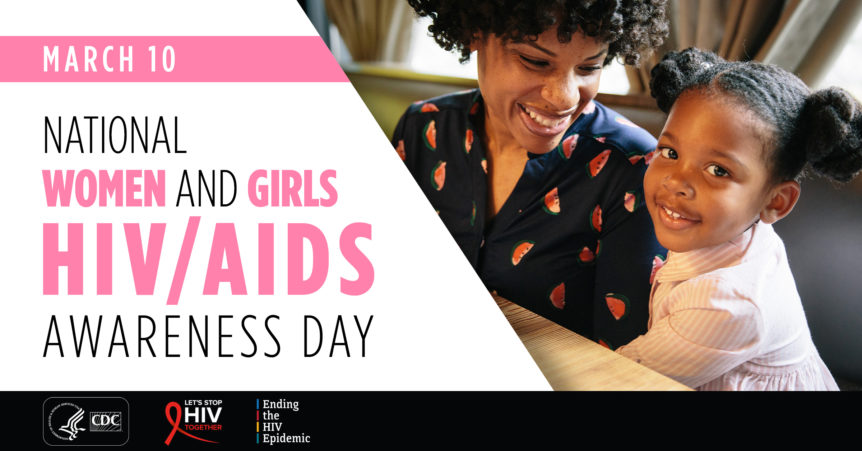This year, we’ll be honoring Women and Girls HIV/AIDS Awareness Day 2020 by hosting two smaller, more intimate parties at two different sites- MetWest High School and Reach Academy. We want to know how the younger generation promotes safer sex – how do you educate your peers and community and have THAT conversation?
Our friends at the Office of Women’s Health/Department of Heath and Human Services, who support our KEYWAYS program, sent us this about the 2020 NWGHAAD theme, “HIV Prevention Starts With Me: Ending the HIV Epidemic Together.” This theme emphasizes the role everyone plays in HIV prevention—community organizations, health care professionals, and people, including those living with HIV. There are steps you can take to protect yourself, your partner, patients, your family, and your neighbors.
- Get an HIV test, which is free and confidential. To find a location, visit gettested.cdc.gov.
- Prevent HIV by using a latex condom every time you have sex.
- If you are HIV-negative and your partner has HIV, talk to a doctor about taking pre-exposure prophylaxis (PrEP), a daily pill that can reduce your risk of getting HIV from sex by more than 90%. Find a provider near you at PrEPlocator.org. (WORLD’s affiliate organization, AIDS Healthcare Foundation, provides PrEP right across the street, and WORLD has a PrEP navigation program to make the whole process easier! Call us at 510-986-0340 for details)
- If you are living with HIV, talk to your doctor about ways to stay healthy and take your medication as prescribed to achieve and maintain an undetectable viral load. It can help prevent spreading HIV to your sexual partner or if you are pregnant, to your baby.
- If you think you may have been exposed to HIV, visit a doctor or nurse right away. The doctor may decide that you should get post-exposure prophylaxis (PEP). PEP is an anti-HIV medicine that you take within 72 hours of possible exposure to HIV to lower your chances of getting HIV.
- If you are a health care professional, you should know the screening guidelines, talk to patients about their risk, and encourage patients living with HIV to adhere to treatment.
Here are additional tools that can help you educate yourself and your community about HIV/AIDS:
- Ending the HIV Epidemic: A Plan for America at https://www.hiv.gov/federal-response/ending-the-hiv-epidemic/overview.
- Ready, Set, PrEP at https://www.hiv.gov.
- Ideas for observing NWGHAAD at https://www.womenshealth.gov/nwghaad/resources/ideas-observing-nwghaad.
- NWGHAAD Social Media Toolkit at https://www.womenshealth.gov/nwghaad/resources/toolkit.
- HIV Prevention Toolkit: A Gender-Responsive Approach (see attached.)

